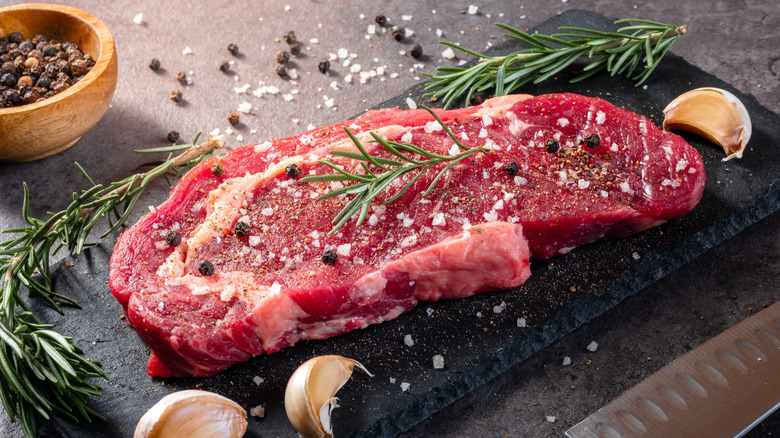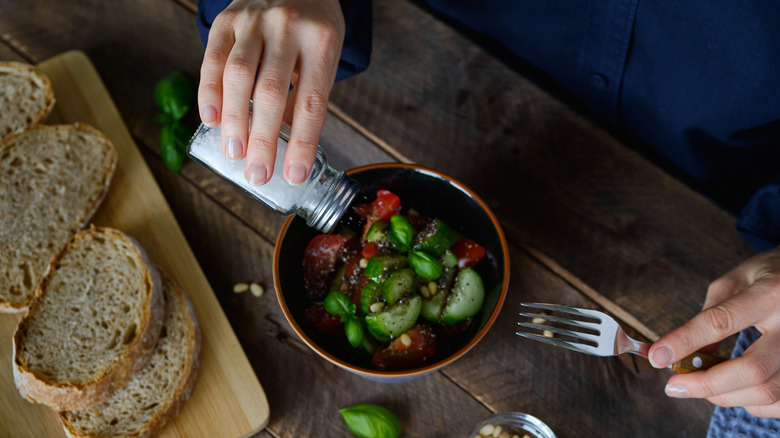All Hail The King Who Helped Make Salt And Pepper The Go-To Seasoning Combo
The tale of how salt and pepper came together is rather apocryphal. While salt has always had a foothold in culinary practices across the world, be it in service of seasoning, preserving, or both, pepper has had a more gradual rise to fame. During the European Middle Ages, the use of expensive imported peppercorns was especially associated with wealth and courtly dining, making seasoning decisions all the more critical for royal cooks.
All of this is to say that, hundreds of years ago, salt and pepper were not the time-tested and loved combo they are today. It didn't really arise until the 17th century, when the head chef of King Louis XIV of France, François Pierre La Varenne, solidified the pairing as the dynamic duo that culinary history would never forget. The combination of these two seasonings is said to have been La Verenne's solution to Louis' delicate palate. The king's preference reportedly was that flavorings should not overpower the taste of the food itself, making the subtle nature of salt and pepper a perfect seasoning solution. While some flavor duos, like apple and cheddar cheese, are perhaps less intuitive, combining salt and pepper has since become almost second nature for many chefs, thanks to its versatility and unobtrusive nature.
A broader history of salt and pepper
Humans have always needed salt to live, but it was only during the time of the ancient Egyptians that salt was revealed to be a powerful and reliable preservative, as the natural salts found in Egypt helped preserve otherwise untouched remains buried in pre-pharaonic-era graves (when you think about it, you probably have salt-packed mummies to thank for dishes like gravlax and lox). Pepper was even more of a powerhouse, as it was used both as a seasoning and as a medicinal component. As millennia passed, the reach of pepper expanded well beyond its homeland of India as the spice trade spread its fame far and wide.
As the fervor for spices decreased with more efficient trade networks and lowered prices, seasonings and condiments at dinner tables became more ubiquitous. They also allowed diners to cater to their own tastes while connecting one style of cuisine to another (the rise of salt and pepper shakers in the 20th century helped make this customization all the more convenient). While salt and pepper always have been reliable choices for crowd-pleasing dinners, you don't have to totally play by Louis XIV's rulebook, as there are many other unique spices out there that will give your dishes pizazz.

